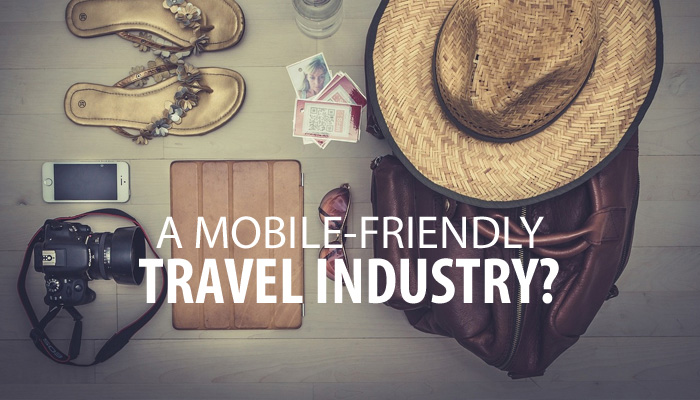
Last week Ofcom, the voice of the UK communications industry, revealed the pivotal news that the Smartphone is now our favourite device for browsing the internet. Further to this, we now spend on average almost two hours online each day on our Smartphone devices.
In 2015 approximately 50% of all travel bookings will be made online and over 20% of these will be via a mobile device so bearing this in mind, we’ve analysed the websites of 20 independent travel agents and tour operators with surprising results. The companies included in the study are Kuoni, Sovereign, Kenwood Travel, Best at Travel, ITC Luxury Travel, If Only, Elegant Resorts, Carrier, Abercrombie & Kent, Inspired Luxury Escapes, Scott Dunn, Hays Travel, Six Star Holidays, Bookable Holidays, Luxury Holidays Direct, Fleetway Travel, Destinology, Cox and Kings, Sunmaster and Premier Holidays.
1 in 3 websites are NOT mobile friendly
35% of the websites tested were either not responsive (i.e. did not adapt to the browsing device’s screen resolution) or did not have a dedicated mobile site. Research shows that 30% of mobile users will abandon a website if it is not optimised for their device.
4 in 5 websites are NOT designed with a mobile first approach
Just 20% of the websites tested provided a mobile optimised experience. Of those websites that were responsive no consideration had been given to reducing page load speeds, optimising images or tailoring content to suit a smaller screen size and the needs of the mobile customer. It was quite obvious that the main focus during the design process had been on desktop browsing first with mobile a lesser priority.
80% of websites suffered from slow loading times
The average home page size of the websites tested was 3.2mb. To put this into context – the average page size of the top one million websites in the world (according to Alexa.com) is 1.1mb – which is 3 times smaller. Only 4 of the websites tested had a home page size of less than 1.1mb. Quite shockingly the largest home page tested was over 23mb! Using mobile data, the approximate time to download a 3.2mb page would be 1 second on 4G, 2 seconds on 3G and a whopping 20 seconds on 2G. Once you factor in page load speed as well then it would make for a slow browsing experience (even using most Wi-Fi connections) and research has shown that 57% of mobile users will abandon a website if it takes longer than 3 seconds to load.
Mobile first, desktop second
Mobile has changed the way we search. We no longer go online, we are online. Your customer’s purchase path is more fractured than ever and your website must be able to deliver the right content, in the right context at the right time. Mobile searches on Google are now more popular than desktop searches in over 10 countries (including UK and USA). As of 21 April 2015, Google updated its search algorithm to include mobile-friendly usability factors. Websites which are not mobile-friendly will be penalised on Google's mobile search result pages.
This rapid and continued increase in the use of Smartphones for researching and booking travel means it is essential for companies to take a mobile first approach in developing their websites and digital marketing activities. Those brands that do can expect increased engagement, visitors and booking levels.



0 responses so far ↓
Do you have a comment on How mobile friendly is the UK travel industry? you would like to share?
If so we would love hear from you! Please get the conversation started below...
Leave a Comment